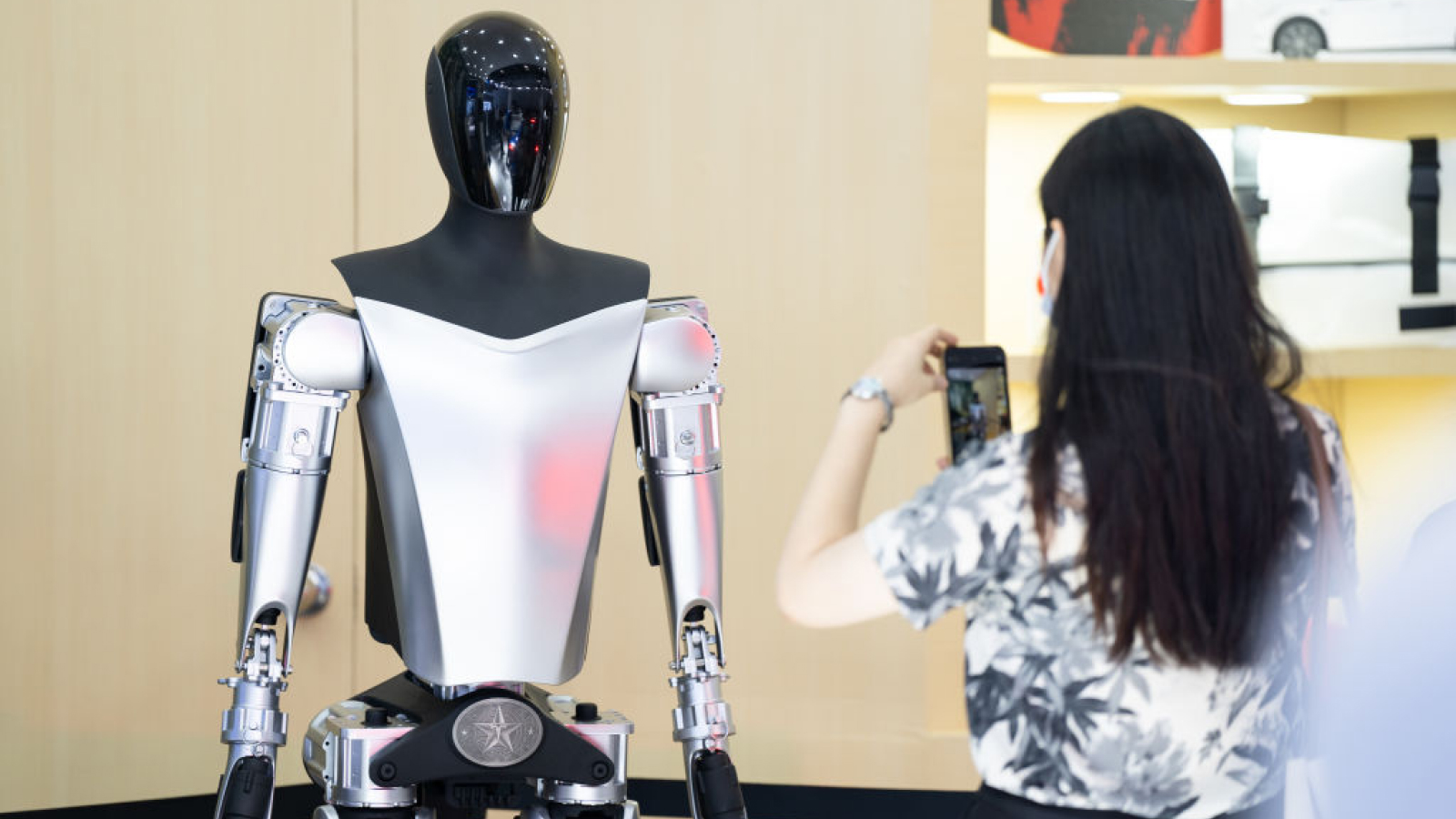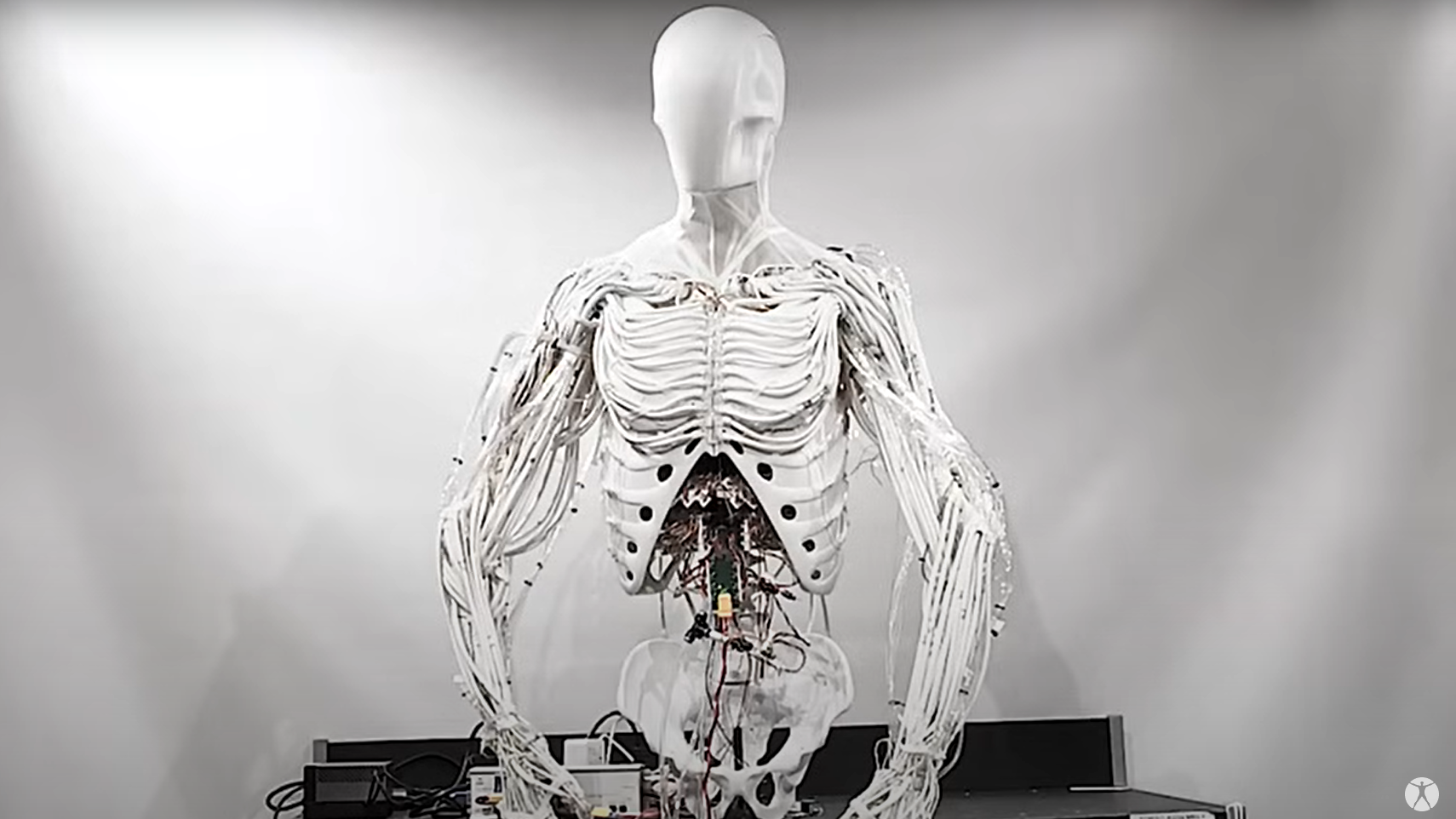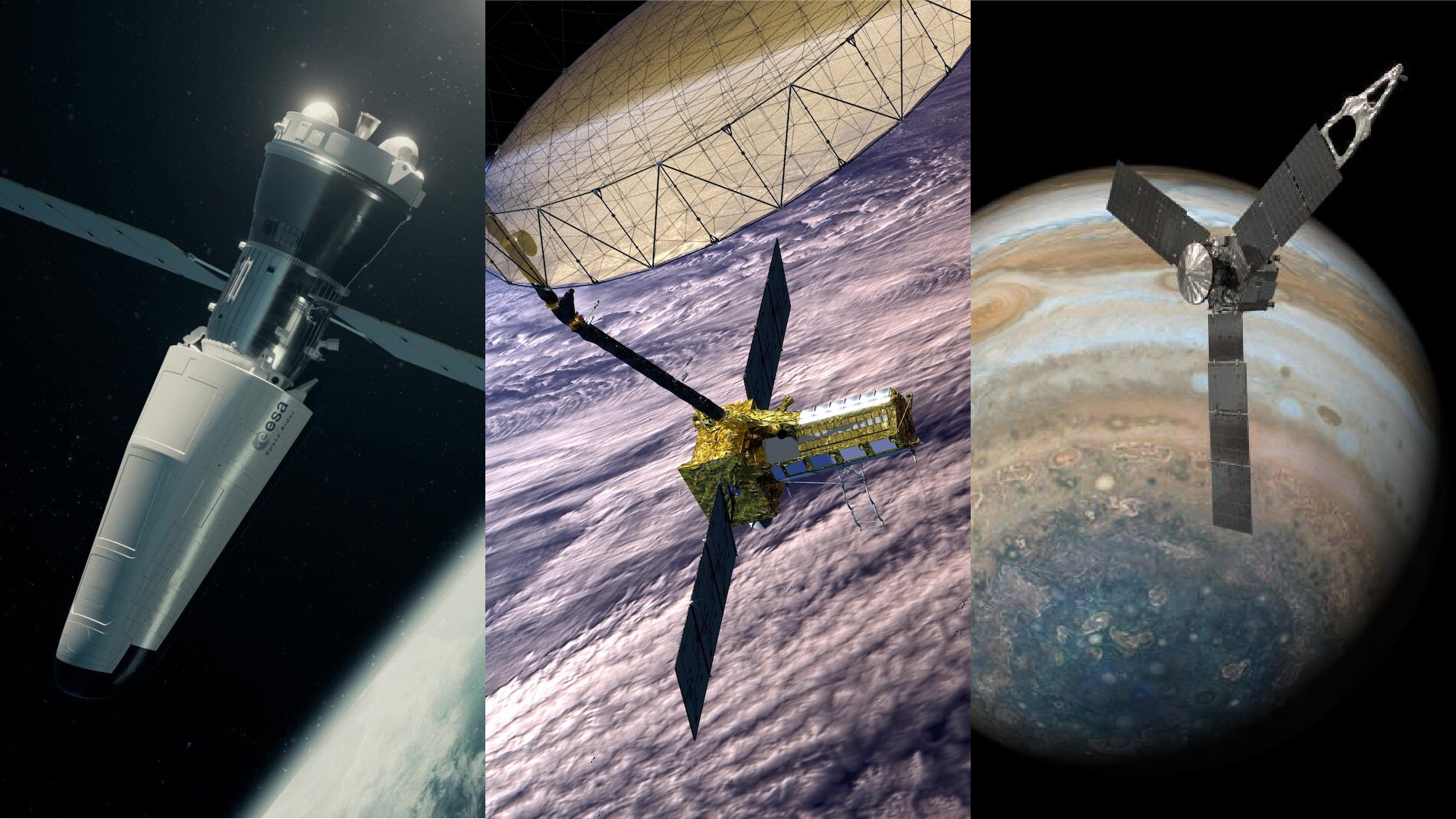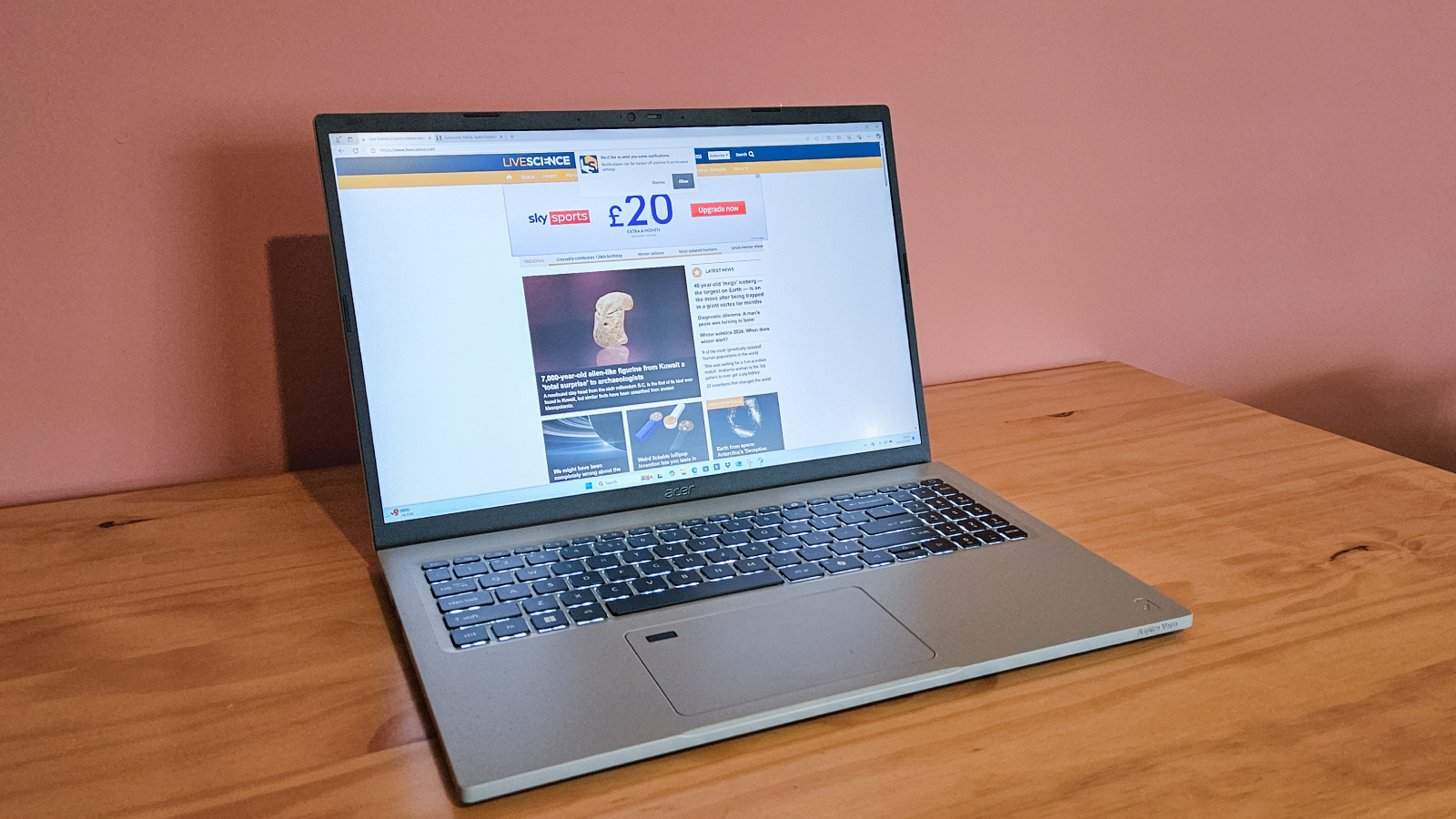The Animal Kingdom's Most Devoted Dads
Salute to Dads
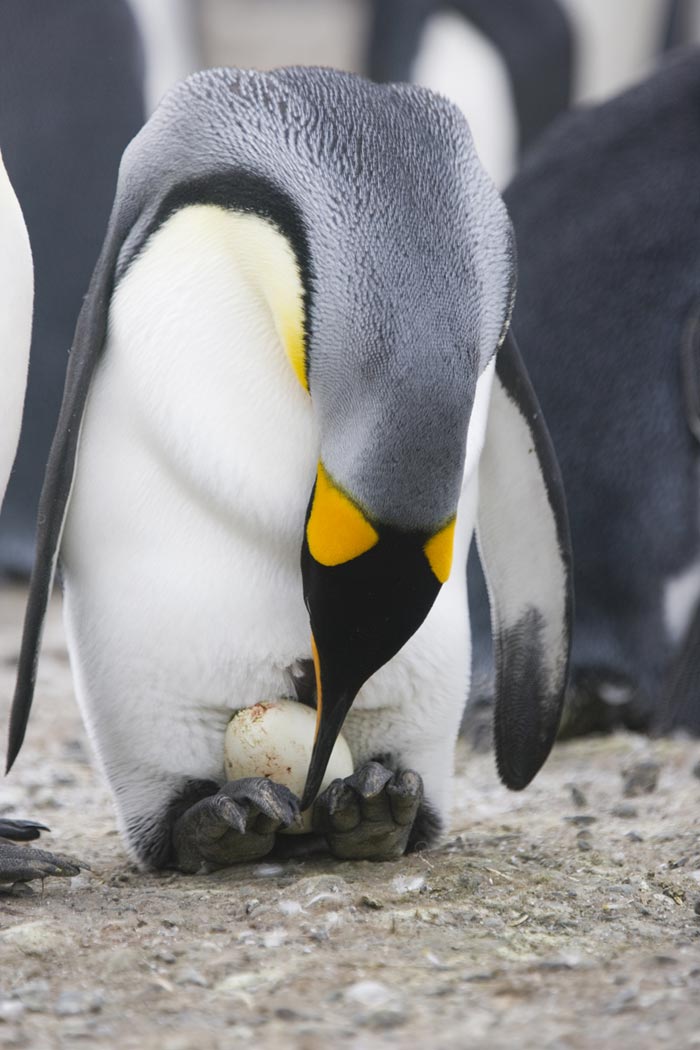
Here's a salute to the animal kingdom's most devoted dads, from male seahorses that get pregnant to daddy wolves that barf out food for their offspring and the extra-caring spotted sandpiper fathers — they take care of the brood while mom is off philandering.
Nurturing Marmosets
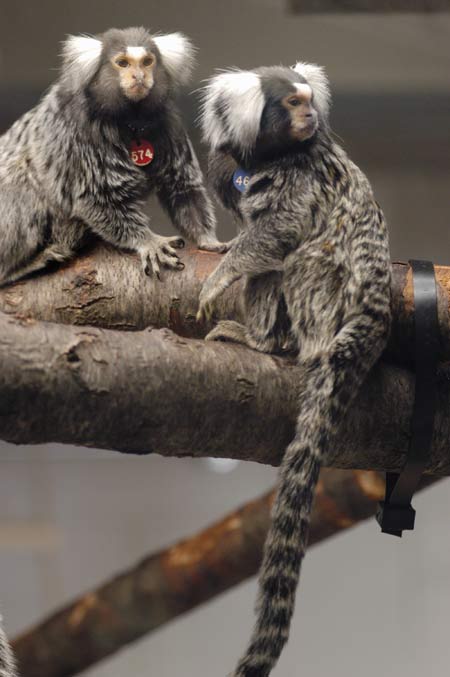
Male marmosets take care of their offspring as newborns — even licking and grooming them at birth. If that isn't sweet enough, consider this: After his babies are born, a marmoset daddy doesn't look twice at an ovulating female, despite stereotypes that male animals are always out to spread their genes.
Gestating and giving birth is an energy-sapping process for mama marmosets, so dad's involvement is crucial to the offspring's survival. When researchers at the National Primate Research Center wafted the scent of a sexually available female toward daddy marmosets, they expected that the animals' testosterone levels would spike, indicating sexual arousal. Instead, the marmosets proved themselves to be serious family guys. Their testosterone levels didn't even waver, the researchers reported in 2005 in the journal Hormones and Behavior.
Pouched Papa
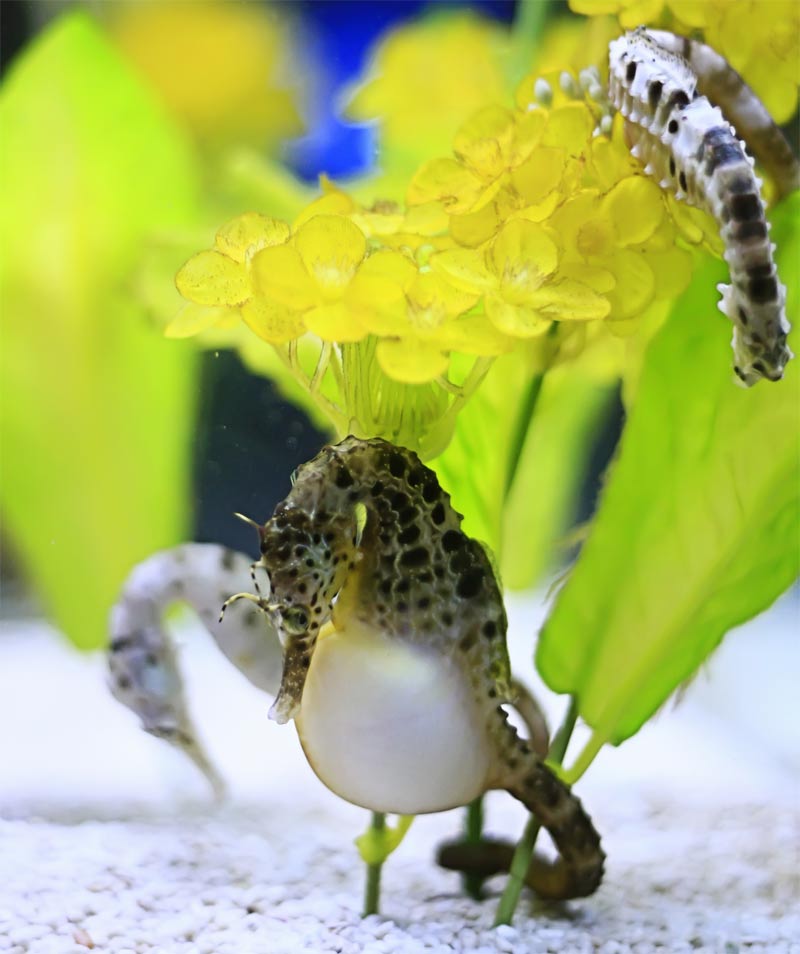
A male seahorse may be the ultimate catch. They not only get pregnant, brooding eggs in their pouch, but they're monogamous and so mate for life. Here's how it works: The seahorse mates intertwine their tails, and the female connects a tube, call and ovipositor, to the male's pouch, through which she delivers her eggs. Inside the pouch, the male fertilizes the eggs and keeps them snug for two to three weeks, depending on the species. And like any good daddy, he monitors the salt levels inside his pouch to ensure they match the surrounding environment to keep the baby seahorses healthy.
Loving Waterbugs
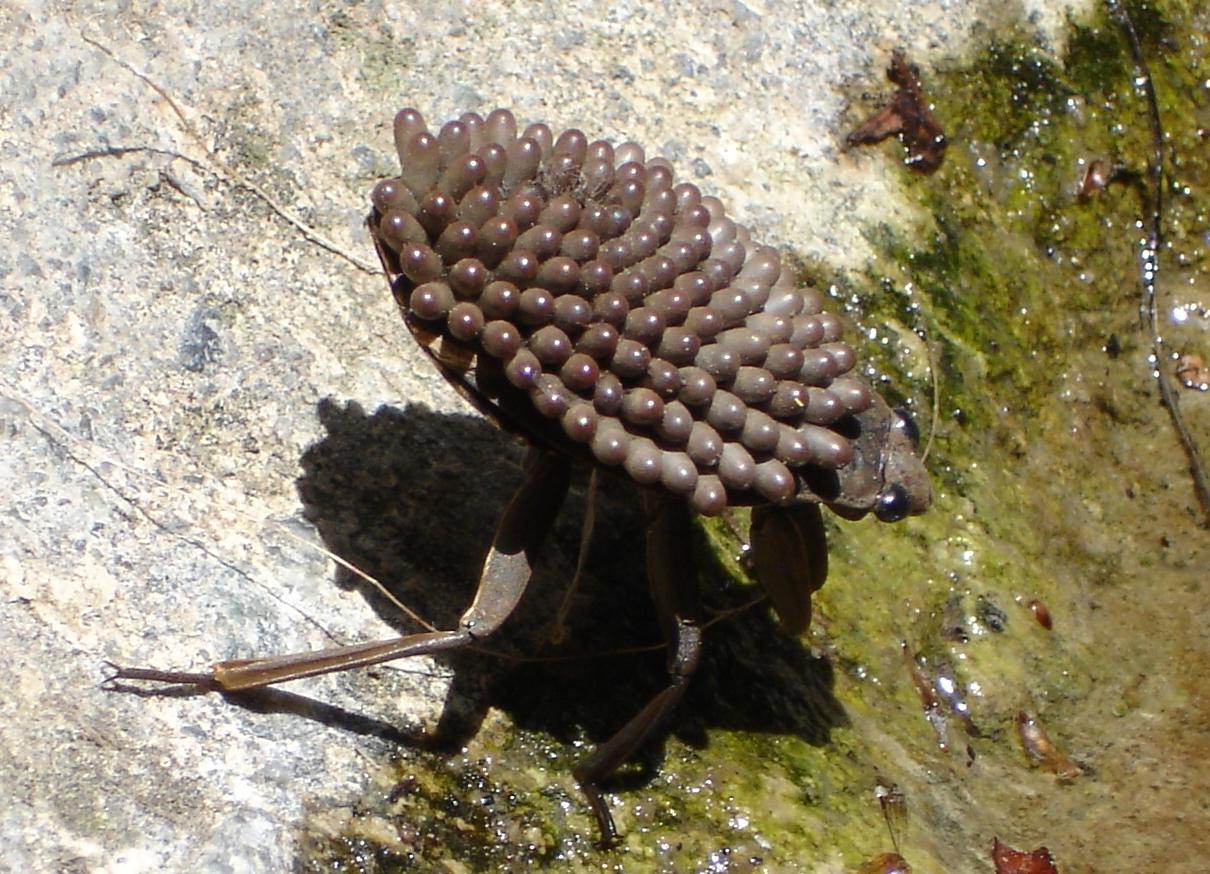
Giant water bugs, also known as toe-biters and alligator ticks, are not pleasant company due to their painful bite. But father water bugs are dedicated to their eggs. After mating, the female glues a brood of more than 100 eggs to her partner's back. He'll carry his future offspring around for the following weeks, airing them out and combing his legs through the eggs periodically, protecting them from fungal infection. Way to give the kiddies the best possible start, pops!
Rad Rhea Dads
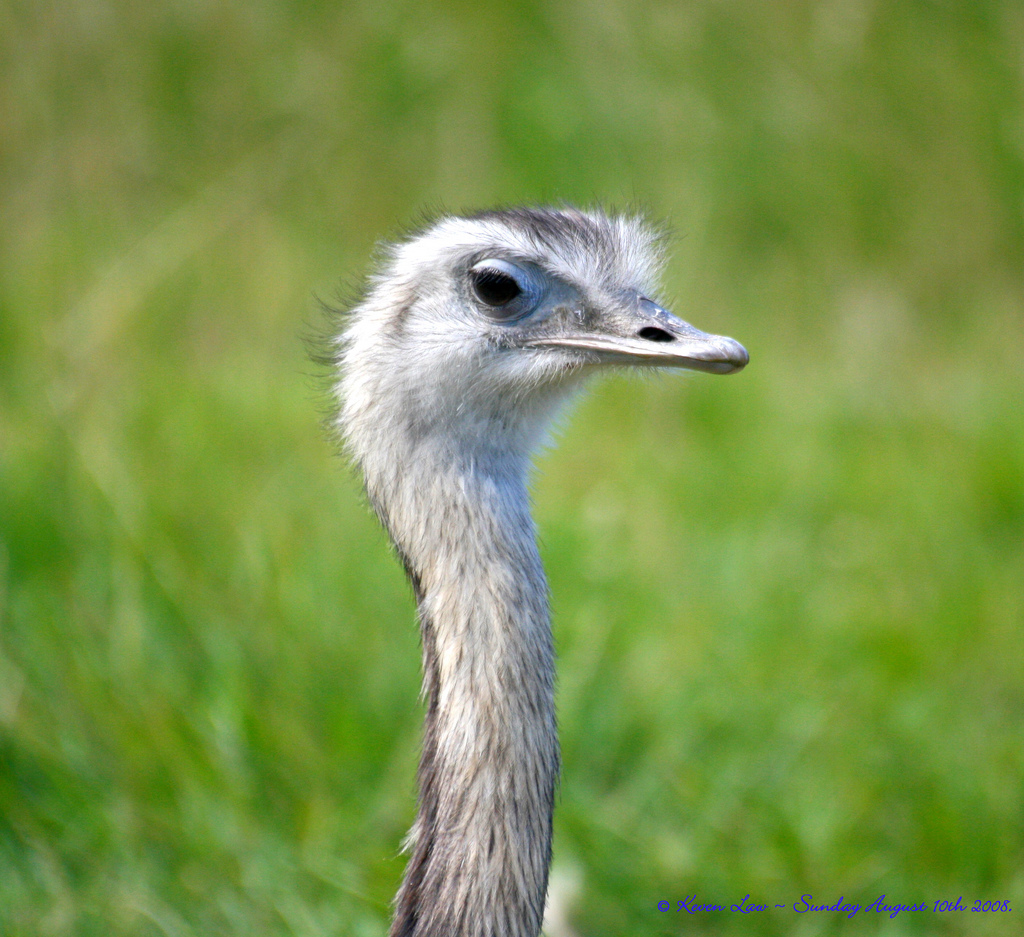
A polygamous bird that keeps a harem of up to a dozen females doesn't seem like he'd be in the running to win Father of the Year. But what the rhea lacks in monogamy, he makes up for with paternal dedication. The male rhea builds nests for his mates to lay their eggs in, and then he incubates the eggs and cares for the young while the moms move on to mate with other males. Papa rhea is very protective of his young — and at 88 pounds (40 kilograms) and about 5 feet (1.5 meters) in height, he makes a formidable bodyguard.
Froggy Fathers
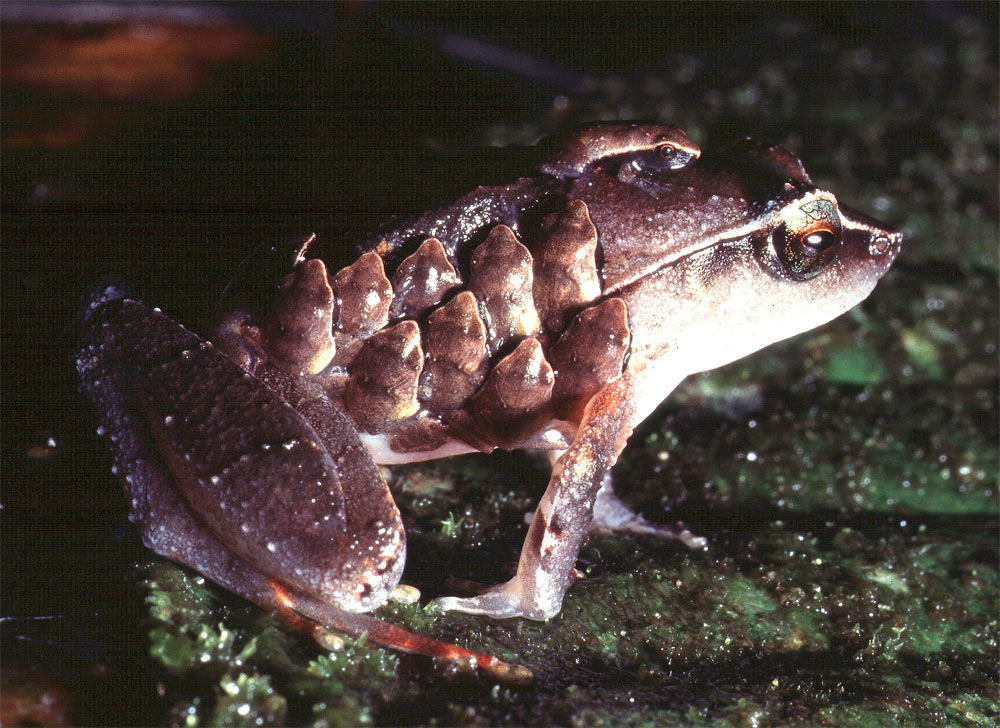
Need a lift? Some froglets have it made in that arena. Members of the family Microhylidae, which includes pointy-headed frogs, the males of two frog species were found to transport their froglets piggyback style. The species, Sphenophryne cornuta and Liophryne schlaginhaufeni (shown here), live in the mountains of Papua New Guinea, where David Bickford of the National University of Singapore discovered this froggy-father transport.
"As the offspring jump off at different points, they may benefit from reduced competition for food, lower predation pressure and fewer opportunities for inbreeding between froglets, which may explain why this unusual form of parental care evolved," Bickford wrote in 2002 in the journal Nature. For these species, once mom has layed her eggs, she's gone, leaving dads to fertilize and care for the developing young.
Faithful Sandpipers
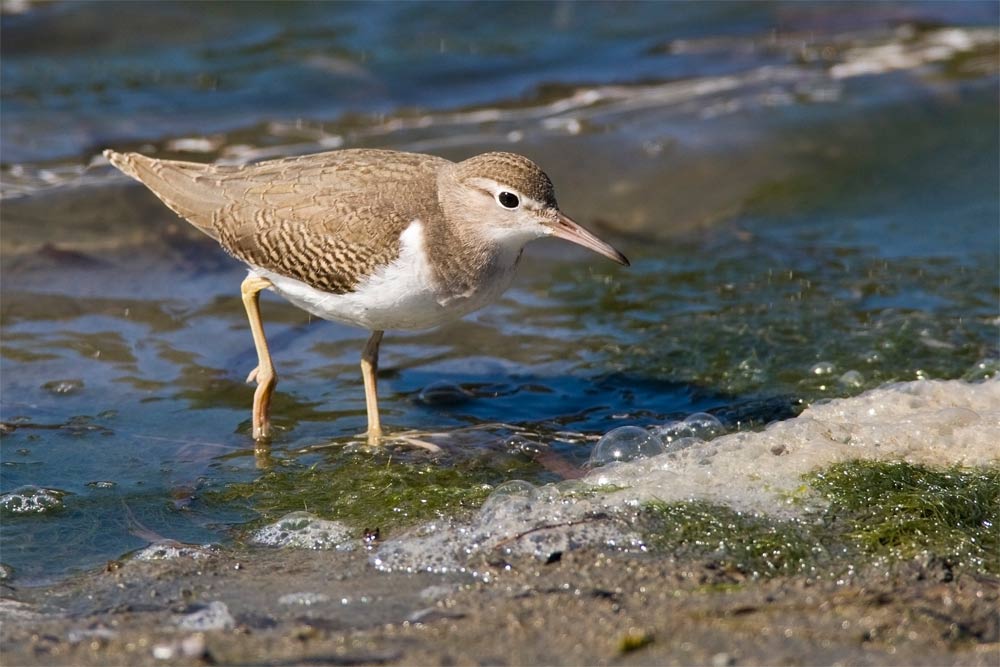
Spotted sandpiper ladies, it seems, get to have all the fun, at the expense of Dad. In this polyandrous species (Actitis macularius), the female is much larger than the male and mates with several males. She stakes out her bachelorette pad where she lures in a mate. The real kicker? After laying her four eggs in a ground nest, she flits off to find another guy pal, leaving the male sandpiper to incubate the eggs and then tend to the young for at least four weeks. Go papa sandpiper!
Papa Penguins

Penguin dads are extremely hands-on (or should that be 'wings-on?' in caring for their chicks. Male penguins take egg-sitting duties for weeks while mom heads to sea to hunt fish for her soon-to-hatch offspring. Males fast during this time period, but if the chick hatches before mama penguin returns, dad can still produce a curd-like substance, which he regurgitates to keep baby fed.
In fact, males are so important to the brooding process that females seek out pudgy partners who can sit on eggs longer without food. One 2010 study found that females can tell how fat a male penguin is by listening to his hoarse mating cries.
Steady Single
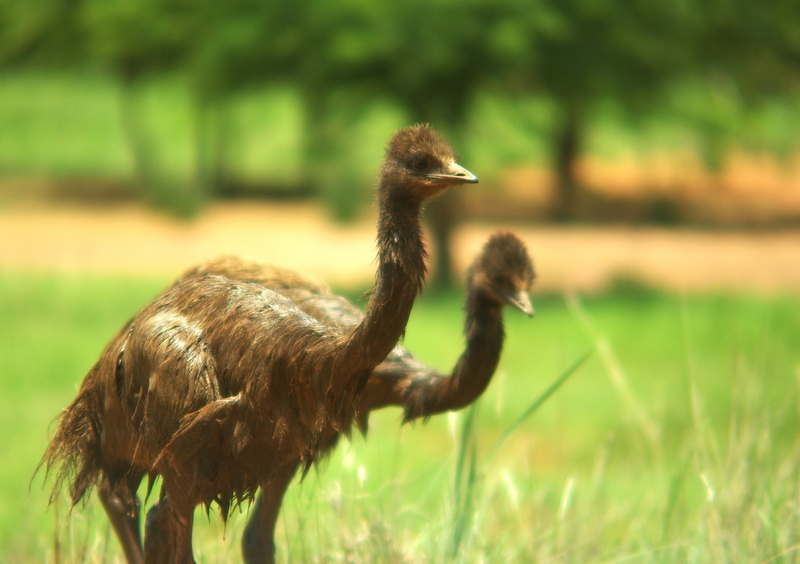
Emus (Dromaius novaehollandiae) make for sturdy parents, with adults towering at about 6.5 feet (2 meters) and weighing up to 100 pounds (45 kilograms), according to the Australia Zoo. And papa emus can't be beat. After mama lays her clutch of some six to 11 eggs, she wanders off to find another mate while he watches over the incubating eggs for about 60 days. And then, as a single parent, the male cares for his emu chicks for up to two years.
Daddy Daycare
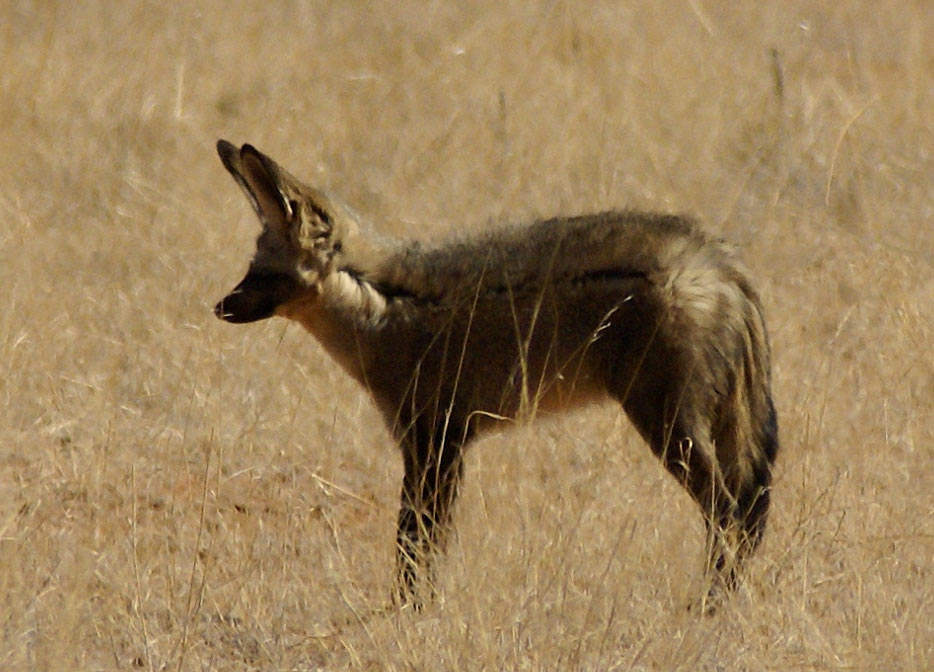
This father fox takes on babysitting responsibilities while the mother is off foraging. In fact, the males of bat-eared foxes (Otocyon megalotis) spend as much if not more time guarding, grooming and rearing the young as the females. This nocturnal species lives in family groups with a monogamous mating pair and their young.
Sign up for the Live Science daily newsletter now
Get the world’s most fascinating discoveries delivered straight to your inbox.

